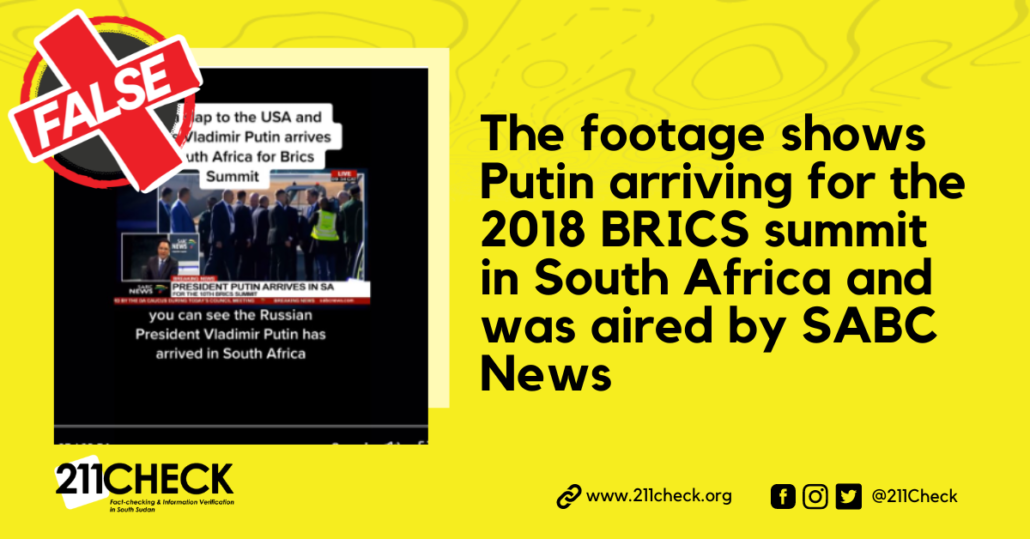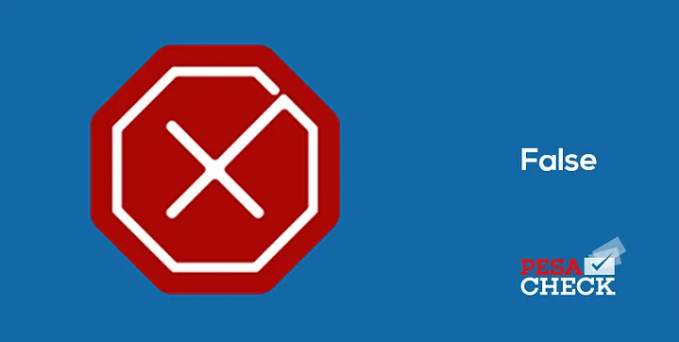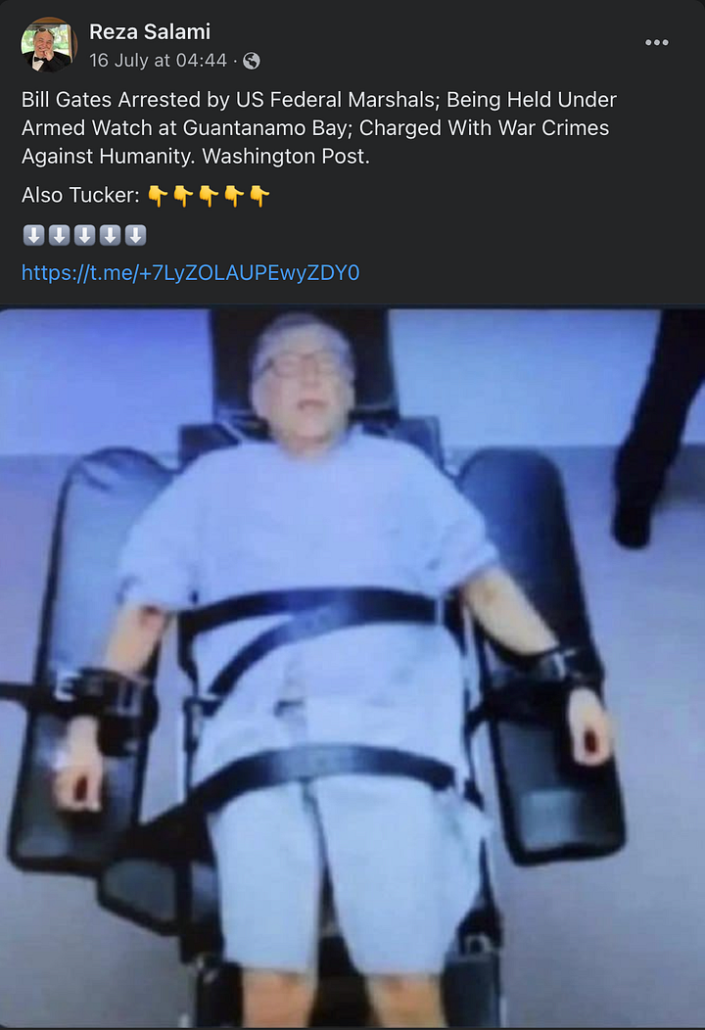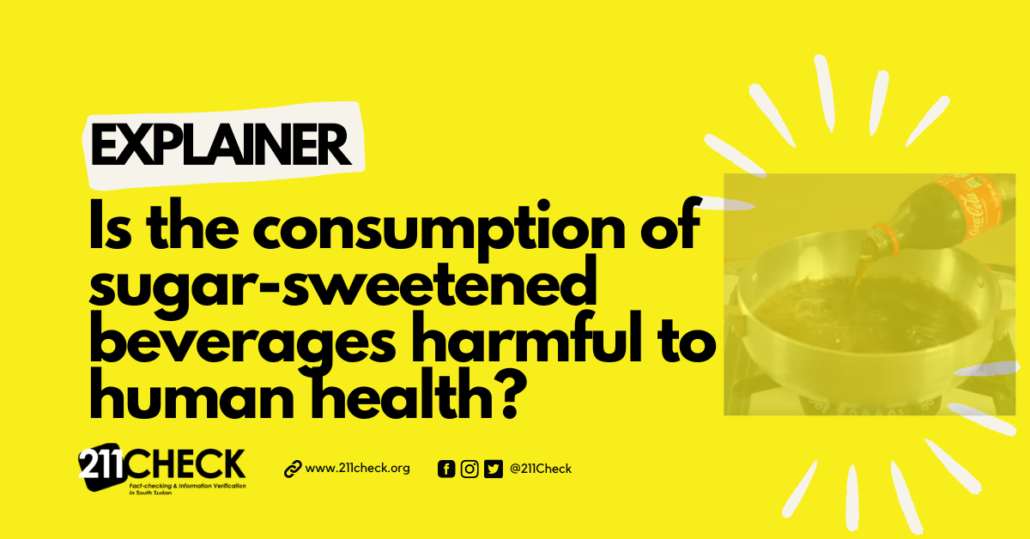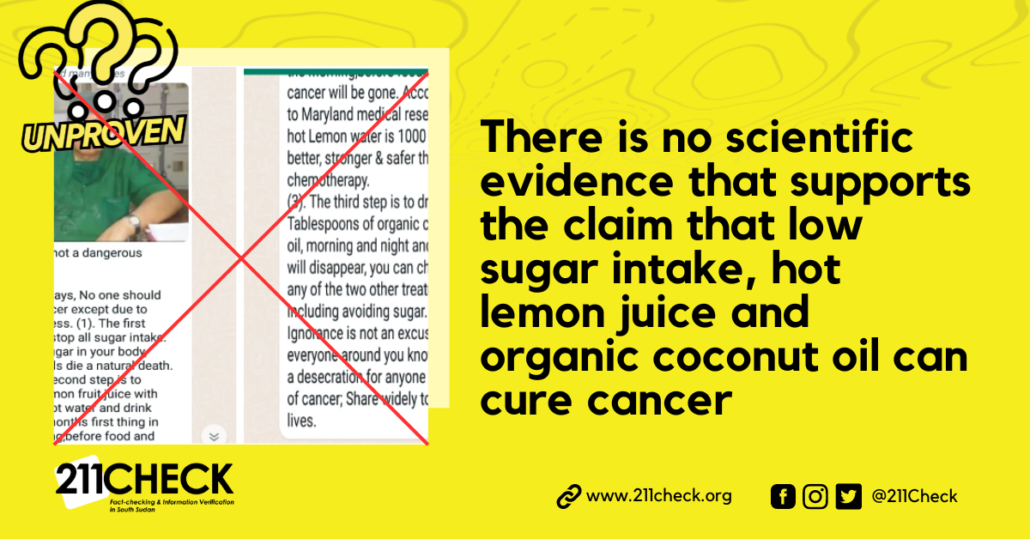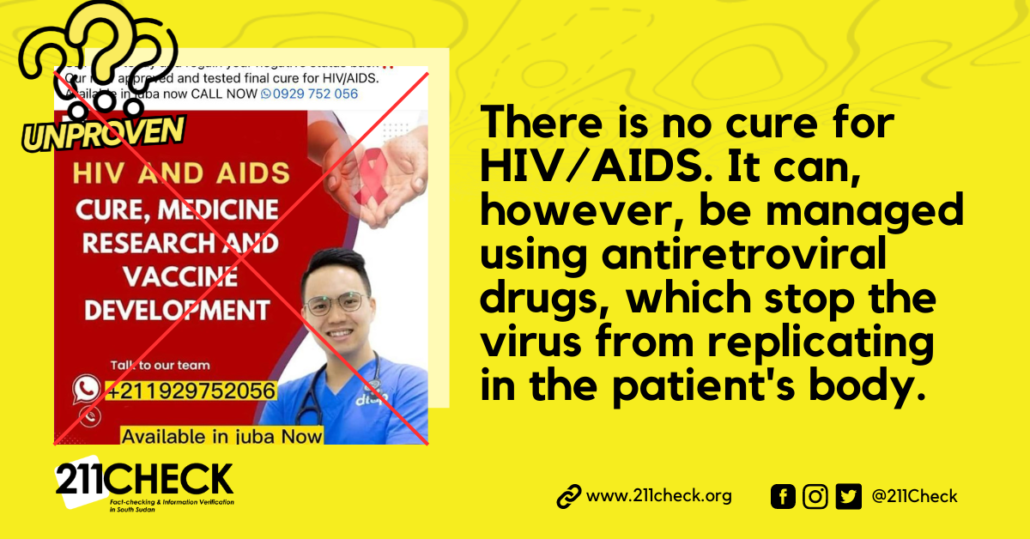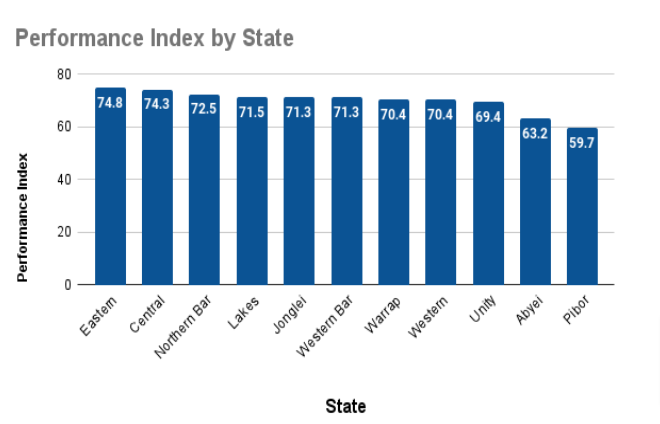Fact-check: Did Russian President Putin arrive in South Africa for the 2023 BRICS Summit, as video footage shows?
No, the footage shows Putin arriving for the 2018 BRICS summit in South Africa and was aired by SABC News.
Writer: Ochaya Jackson
A viral Facebook post with a video showing Russian President Vladimir Putin supposedly arriving for the 2023 BRICS summit in South Africa is false.
The post, shared on 19 August 2023, reads: “President Putting has landed….. (sic).” The video shows Putin being received at the airport.
The claim, widely shared on Facebook and TikTok, appears to be footage aired by South Africa Broadcasting Corporation(SABC) News.
A keyword Search using the words “Putin arrives in South Africa for BRICS Summit” shows that the claim was shared widely.
In one instance, a TikTok user shared the video footage, claiming that the Russian President’s arrival for the BRICS summit in South Africa was a slap to the United States and the International Criminal Court (ICC).
“It’s a slap to the USA and ICC as Vladimir Putin arrives in South Africa for [the] BRICS Summit,” reads the claim text.
The screenshot of the TikTok claim
The Google Search result also returned a fact-check by RTL Today, debunking the same false claim.
Context:
The BRICS Summit is an international relations conference that brings together heads of state from the BRICS countries namely Brazil, Russia, India, China, and South Africa as a group of emerging economies. It was also attended by various heads of state or government officials from other countries around the world.
The claim regarding Putin’s arrival in South Africa surfaced ahead of the three-day 15th BRICS summit held from 22 August 2023 in South Africa.
Putin was supposed to attend the summit as a member of the BRICS. Still, the South African government announced on July 19, 2023, in a statement that the Russian president would not attend the summit, citing it as a mutual agreement.
Notably, the International Criminal Court, which South Africa is a member of, issued an arrest warrant against Putin in March 2023. The warrant subjects him to arrest in any member country of the Hague-based court.
A keyword search on “Putin arrives in South Africa” on YouTube returns the footage captured by SABC News. It was taken when the Russian President arrived for the 2018 BRICS summit in South Africa.
For the 2023 BRICS summit, Putin was represented by the Russian Foreign Affairs Minister Sergey Lavrov.
According to a media report, Putin addressed the audience at the summit via a video link but not in person.
Conclusion:
The video supposedly showing Putin arriving for the 2023 BRICS summit in South Africa is false. The video was taken by SABC News in 2018 when Putin attended the 10th BRICS summit hosted by South Africa.
This fact check was published by 211 Check with support from Code for Africa’s PesaCheck and the African Fact-Checking Alliance.
To ensure accuracy and transparency, we at 211 Check welcome corrections from our readers. If you spot an error in this article, please request a correction using this form. Our team will review your request and make the necessary corrections immediately, if any.
It’s vital to fight misinformation and disinformation in the media by avoiding fake news. Don’t share content you’re uncertain about. False information can harm and mislead people, risking their lives—Fact-check before sharing. For more details, visit https://211check.org/ or message us on WhatsApp at +211 917 298 255. #FactsMatter.

